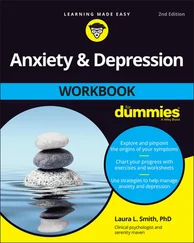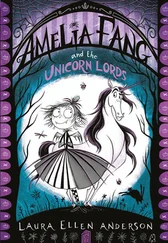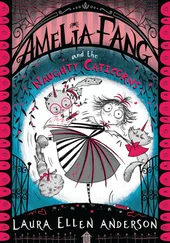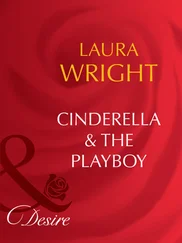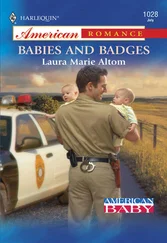Laura Schlitz - Splendors and Glooms
Здесь есть возможность читать онлайн «Laura Schlitz - Splendors and Glooms» весь текст электронной книги совершенно бесплатно (целиком полную версию без сокращений). В некоторых случаях можно слушать аудио, скачать через торрент в формате fb2 и присутствует краткое содержание. Год выпуска: 2012, ISBN: 2012, Издательство: Candlewick Press, Жанр: Старинная литература, на английском языке. Описание произведения, (предисловие) а так же отзывы посетителей доступны на портале библиотеки ЛибКат.
- Название:Splendors and Glooms
- Автор:
- Издательство:Candlewick Press
- Жанр:
- Год:2012
- ISBN:978-0-7636-6246-2
- Рейтинг книги:5 / 5. Голосов: 1
-
Избранное:Добавить в избранное
- Отзывы:
-
Ваша оценка:
- 100
- 1
- 2
- 3
- 4
- 5
Splendors and Glooms: краткое содержание, описание и аннотация
Предлагаем к чтению аннотацию, описание, краткое содержание или предисловие (зависит от того, что написал сам автор книги «Splendors and Glooms»). Если вы не нашли необходимую информацию о книге — напишите в комментариях, мы постараемся отыскать её.
Splendors and Glooms — читать онлайн бесплатно полную книгу (весь текст) целиком
Ниже представлен текст книги, разбитый по страницам. Система сохранения места последней прочитанной страницы, позволяет с удобством читать онлайн бесплатно книгу «Splendors and Glooms», без необходимости каждый раз заново искать на чём Вы остановились. Поставьте закладку, и сможете в любой момент перейти на страницу, на которой закончили чтение.
Интервал:
Закладка:
One of the smallest photographs had a round frame with tiny pearls going around the edge. Parsefall eyed it speculatively. Pearls were worth money, and the silver was probably real. There were half a dozen other photographs on the table. That was good; the absence of one might go undetected for some time. He glanced at Clara and Lizzie Rose, saw that they were occupied with the puppets, and his hand shot out. Another moment, and the photograph was in his pocket.

At half past four in the afternoon, Clara led her guests upstairs to the drawing room and invited them to seat themselves before the stage. The youngest children sat on the floor with Clara. Older children chose footstools, and their mothers sat on chairs assembled from all over the house. Clara’s governess, Miss Cameron, shared a sofa with Mrs. Wintermute. The servants in the back of the room watched standing.
Agnes dimmed the lamps, leaving most of the room in semidarkness. The little theatre stood in a pool of light. One of the footmen coughed. The door opened, and Clara’s father stole inside. Clara was glad. She had been afraid that Dr. Wintermute would be too busy to see the show.
There was a rattle from Parsefall’s tambourine, and Lizzie Rose played a weird little melody on the flute. The miniature curtains lifted and parted, revealing a painted wood and a wolf in a green satin frock coat.
The wolf tilted his head and began to speak. Gesticulating with one paw, he told the audience how hungry he was and how he longed for a little child to eat. He spoke so plaintively that Clara fully sympathized with him. Then Red Riding Hood took the stage. The little puppet in her red cloak was dainty and innocent; it seemed cruel that she should be the wolf’s prey. Clara locked her fingers together, caught between warring desires. Around her, the audience was held in thrall. The children in the front row no longer saw the strings that worked the puppets. The miniature actors appeared to swell in size; their painted features looked as if they smiled and frowned.
Red Riding Hood was tricked, devoured, and reborn by the ax of the hunter. The front curtain dropped, while Lizzie Rose played the kit and Parsefall changed the backdrop. The curtain lifted to reveal a Venetian street scene, complete with humpbacked bridges and moving gondolas. A handsome young puppet lamented his lack of money. A stranger with a plumed hat overheard his complaint and offered to sell him a magic bottle with a demon inside it. The Bottle Imp, he explained, would grant him all the gold in the world — only he must sell it before he died, or risk the fires of hell. Ten minutes later, the hero lay at death’s door, and the demon leaped out of his bottle with a clap of thunder. He was sea green, with horns sprouting from his temples and bat wings instead of arms. His countenance was so frightful that one little girl left her seat on the floor and plunged into her mother’s lap.
But the play was not yet over. A maiden with golden curls nursed the hero back to health. In the end, the stranger with the plumed hat was tricked into buying back the bottle, and the hero married his golden-haired sweetheart. The children clapped lustily. Before their hands had stopped smarting, the curtain rose again, and Lizzie Rose’s fiddle played a lilting air.
A tiny ballerina tiptoed onto the stage. She was so light on her pointes, so perfectly balanced, that she might have been a fairy. Clara leaned forward, enraptured. She wished she could dance like that. Sometimes when she was supposed to be in bed, she danced in the dark nursery, twirling on half pointe and holding out the skirts of her nightdress. She wished that she could be a ballet dancer. She saw herself in pink gauze, with rosebuds in her hair, gliding like a swallow, leaping, fluttering, soaring. . . . Then her conscience rebuked her. Dancing wasn’t proper, and it was her duty to stay home and be a comfort to her parents. Clara’s breath left her in a sigh.
The dancer was replaced by a juggler, who tossed three balls into the air: green, lavender, and silver. After the juggler came a tightrope walker — and by now even the grown-ups had forgotten that they were watching fantoccini and worried lest the manikin should fall and break his neck.
The final act was the strangest of all. The curtains parted to reveal a churchyard and a skeleton puppet. As Lizzie Rose played the kit, the skeleton jogged along happily, raising its knobby knees and grinning. Then, with a trill from the fiddle, the legs parted company with the spine and sprinted to the opposite side of the stage.
The children gasped. Several tittered. Clara knelt upright, forgetting the children behind her. Both halves of the skeleton were dancing — and now the skeleton shattered a second time. The skull rose in the air, floating high over the arms and rib cage. It landed center stage, the upper jaw jerking in rhythm with the tambourine. Clara pressed her fingers against her lips. She was shocked — and entranced — and tickled.
The children giggled. The music grew softer. With another trill from the kit, the skeleton’s arms collapsed, making a pyramid of white bones. The legs buckled. Now it was only the skull that moved, clacking open and shut in a fiendish laugh. The white teeth gleamed. The spectacle was grotesque. It was —
Clara heard a strange sound: a cry of laughter that was almost a shriek. It took her a split second to realize that the sound came from her own throat. Her fingers tightened; she covered her mouth with all ten fingers, but it was no use. If she didn’t laugh, she would choke to death. She opened her mouth for air. Another whoop escaped her. The children around her had stopped giggling. They were no longer watching the skeleton. They were watching Clara.
There was a rustle from the back of the room. Clara turned. Her mother was on her feet, making her way to the door. Dr. Wintermute hastened after her. Horror stricken, Clara clamped her hands over her mouth. But the laughter within her was explosive, and knowing that she should stop — must stop — only made matters worse. Peal after peal escaped her. Tears blinded her, first warm and then cold upon her cheeks.
The children shifted restlessly. The skeleton onstage was reassembling itself: rib cage on top of pelvis, head on top of spine. Clara whimpered, bent double. Her sides ached.
The kit trilled its final note. In the silence that followed, the skeleton took a bow. The curtain fell. A few of the children clapped halfheartedly. Even the smallest child knew that Clara Wintermute had disgraced herself.
Miss Cameron stood up. She went to stand in front of the miniature stage, facing the audience. Her face was stern. “I hope,” she said, “that you have enjoyed the entertainment.”
There was a timid ripple of applause.
“Clara,” said Miss Cameron, “you must thank your little friends for coming to the party.”
Clara took a deep breath and got to her feet. Her cheeks were wet and scarlet. “Thank you,” she said hoarsely. She could think of nothing else to say.
Several of the children said thank you in return. Miss Cameron nodded toward the door and began to herd the guests downstairs to the dining room. A few soft thuds and rustles came from backstage. Parsefall and Lizzie Rose must be packing up the puppets. Clara followed her governess downstairs.
The servants rallied around Miss Cameron. Coats were fetched. Gloves were sorted out, slices of cake wrapped up, paper cones filled with sweets for the children to take home. In the midst of the leave-taking, two footmen helped Grisini bring the caravan down the stairs. Lizzie Rose and Parsefall trailed after it. Clara would have liked to wave to them, but she forced herself to speak only to her guests. She stayed close to Miss Cameron, uttering stock phrases of hospitality. She knew that the other children would talk about her as soon as they were out the door.
Читать дальшеИнтервал:
Закладка:
Похожие книги на «Splendors and Glooms»
Представляем Вашему вниманию похожие книги на «Splendors and Glooms» списком для выбора. Мы отобрали схожую по названию и смыслу литературу в надежде предоставить читателям больше вариантов отыскать новые, интересные, ещё непрочитанные произведения.
Обсуждение, отзывы о книге «Splendors and Glooms» и просто собственные мнения читателей. Оставьте ваши комментарии, напишите, что Вы думаете о произведении, его смысле или главных героях. Укажите что конкретно понравилось, а что нет, и почему Вы так считаете.



